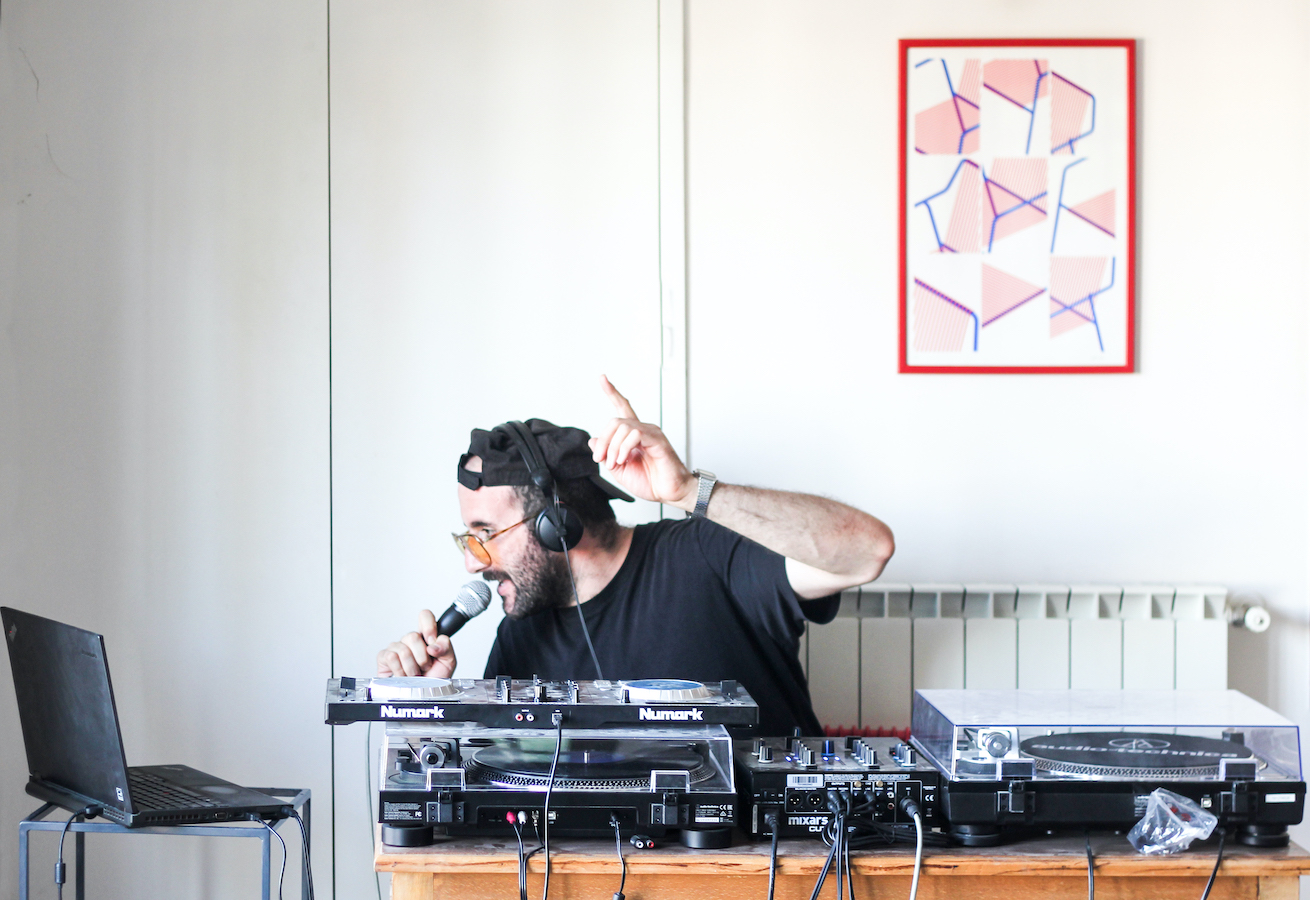MANAMA: A year ago, a group of friends came together during lockdown to begin a journey that unexpectedly spawned a regional success story.
The Bethlehem-based online platform Radio Alhara was launched a little over a month into the COVID-19 pandemic, amidst fear and uncertainty over where it would take us, and how it would affect all aspects of life, especially when it came to the arts and music.
What began as a coping mechanism to deal with the chaos, confusion and desperation of being in lockdown, grew into a far-reaching, socially conscious community of creators joined by a shared passion for music.
“The radio happened at the right time and right place. But there’s a reason why it got popular quite quickly. Between us, we knew many artists and musicians and that was the beauty of it, building that community,” explained Saeed Abu-Jaber, one of the founders, adding, “It has kept us sane during corona.”

Radio Alhara is a Bethlehem-based online platform. (Supplied)
As Radio Alhara marks its first anniversary, the team spoke to Arab News about how the platform has evolved over the past few months — from a place that showcased music they are interested in and enjoy, to its expansion into a more ambitious project.
“What really worked is that we never really focused on attracting big names, some of the best shows (are hosted by) people who were never DJs, they just have a really good ear. We called it a home-listening aesthetic. We want a radio that’s a good companion or like a flatmate,” said Abu-Jaber.
Other key members of Radio Alhara include Elias Anastas, Yazan Khalili and Mothanna Hussein. They have been refining the curation and artistic output of the radio since its inception.
“We’re thinking of it as a cultural platform,” Anastas said. “One of the things we’re trying to maintain with it is that it has programming that constantly changes. And the ability to make it a malleable platform.”

Another key members of Radio Alhara is Elias Anastas. (Supplied)
Currently, the platform is home to podcasts, DJ shows, collaborations with other radio stations, and exclusive album launches. A recent 48-hour program entitled “HIYA” was dedicated to female DJs, sound artists and musicians from around the world.
“Almost 80 to 90 percent of what we’ve been broadcasting over the past year was focused on music. But now, more and more, we have cultural links with other institutions such as the Delfina Foundations in London,” said Anastas. “We’ve also worked, for example, with an Italian photographer who did a project on a parkour group in Gazza.”
“The general openness of the platform is what we should keep going,” Abu-Jaber added. “We had discussions: ‘Should it be about music only?’ ‘No, it shouldn’t!’”
It helps that, from day one, Radio Alhara took an unpretentious and very friendly approach that has appealed to a wide audience, not just locally and regionally, but on a global scale.
“DJs focus (so heavily) on beatmatching and mixing, I always feel. I’m more into being a selector than a DJ,” Abu-Jaber said. “It’s not about the technical skills anymore, it’s about making something that flows really nicely.”

Saeed Abu-Jaber is one of the founders of Radio Alhara. (Supplied)
Radio Alhara has become a source of knowledge and social discussion about key regional issues, which was an organic progression for the project. Over the past few months, it’s managed to cover varied issues including protesting Israel’s annexation plans, social inequality, and unfair distribution of water resources between the West Bank and the settlements.
“The idea of collectiveness is super-powerful,” Anastas said. “This started from Palestine, which — at the end of the day — territorially, is disconnected from the world. Yet it has brought people together from various parts of the world through this platform. We’re broadcasting these voices. It’s not something you expect to come out of this region, forming this community around sound.
“Whatever is normally covered by the media about this region is biased and doesn’t reflect the reality on the ground,” he continued. “Using culture, music and art to find new paths of expressing the reality is interesting for us.”
Radio Alhara is still operating independently, with the team keeping running costs to a minimum. But the platform has amassed a network of collaborators and supporters.
“We want to be able to allow the artists to continue to do what they do and live through their music and art, so we’re looking at how we can support the community by offering other incentives,” Anastas said.
“The fact that it’s based on community means we don’t feel the pressure to have specific goals, but to ride the momentum,” Abu-Jaber concluded.







0 التعليقات:
إرسال تعليق